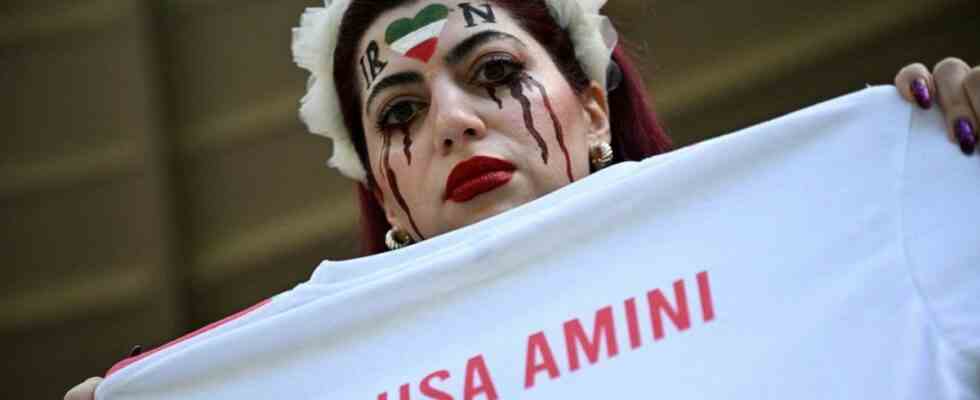After months of protests, the regime announces that the dreaded troops have been disbanded. The headscarf requirement that has been in force since 1979 could also fall. At the same time, the crackdown on the opposition is becoming even more brutal.
The disbanding of the notorious Morality Police, the moral guards force that reports to Iran’s Ministry of Culture and Islamic Guidance, was announced in Tehran on Sunday. President Ebrahim Raisi had invited several ministers to a crisis meeting at his palace the night before. The state-run Isna news agency reported that the meeting focused on current developments in the country, but did not go into details. However, the presence of Parliament President Mohammed-Bagher Ghalibaf and Justice Gholam-Hussein Mohseni-Montaseri indicate that the dissolution of the “Gasht e-Ershad” moral guardian units is actually meant seriously.
The first reactions from opposition circles to the surprising announcement were cautious. With this concession, President Raisi only wants to undermine the nationwide general strike announced for Monday, said an activist from Tehran on the phone to the SZ.
Parliament is scheduled to consider the hijab requirement on Wednesday
Like many members of the opposition, she does not want her name published in Western media. Because one of the regime’s main allegations against the opposition movement, which is now deeply rooted in all social strata, is that it is allegedly being infiltrated by Western countries. President Raisi always defended the brutal actions of the Revolutionary Guards and the Morality Police under his command with the presence of foreign agents among the protesting citizens.
Should small concessions only avert the general strike? Iran’s President Ebrahim Raisi (right), here on Saturday at a conference in Tehran.
(Photo: Imago/Iranian Presidential Office/ APAimages)
But even more than 14,000 arrests and almost 500 demonstrators killed by security forces could not stop the protests. On the contrary. The violence of the security forces has led to calls for the overthrow of the mullahs’ theocracy.
Prosecutor Montazeri told journalists in Tehran that Iran’s parliament and the Revolutionary Council are now also examining the headscarf requirement. Parliamentarians are scheduled to discuss a reform on Wednesday, and the results would be announced 15 days later, Montazeri said.
The end of the compulsory wearing of the hijab would be a spectacular success for the largest opposition movement against the mullahs who have ruled since 1979. But members of the opposition warn against being satisfied with the regime’s small concessions. Because the measures against the opposition continue to take place. Security forces are now using methods of family detention against prominent members of the opposition.
Excavators recently demolished the childhood home of rock climber Elnaz Rekabi, who became world famous in October. At a competition in South Korea, the 33-year-old performed without a hijab. Upon her return to Tehran, Rekabi was greeted by hundreds of fans. Videos surfaced this week of her brother Davood, who is also a top athlete. The footage shows him crying in front of the rubble of the family building.

